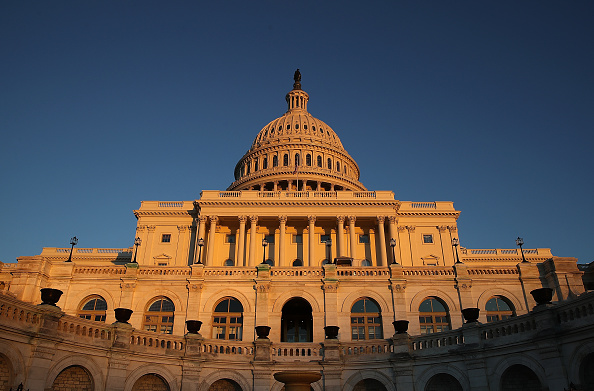The news of a potential government shutdown has been non-stop this week, but lost in all the back and forth between politicians is who a shutdown would directly (and indirectly) affect. While Donald Trump’s top priority in a budget deal seems to be a border wall, other people are thinking about their jobs and the services that so many of us depend on from the government.
We need the Wall for the safety and security of our country. We need the Wall to help stop the massive inflow of drugs from Mexico, now rated the number one most dangerous country in the world. If there is no Wall, there is no Deal!
— Donald J. Trump (@realDonaldTrump) January 18, 2018
So if there is no “deal” we wanted to get to the bottom of how it could impact you and your families. A lot of the information on the official government websites is outdated, most is from the Obama administration. That said the following information is based on a mix of information we found on the Office of Management and Budget website and also what happened during past government shutdowns:
Non-essential workers are usually furloughed. CNN reports, “In previous shutdowns, everyone who stayed home was paid retroactively after an agreement was reached in Washington.” Guess who keeps getting paid? Members of Congress. Their staffers may not get paid, but their paychecks will continue to roll in.
The official statement from the Department of Homeland Security is that “During a lapse in funding, the Department of Homeland Security (DHS) may only continue “exempt” activities such as law enforcement and maritime protection.” The President continues to receive full secret service protection, as do any other politicians who are considered at risk.
The military is considered essential, so troops will still be working, BUT whether or not they get paid right away is another question. If the shutdown lasts past February 1st there is a chance they won’t get paid until after a shutdown (in which case they would get retroactive pay). For people living check to check this obviously looms large.
Most veterans affairs should continue. Though some offices may be closed so new paperwork may not be filed during the shutdown.
Federal courts also stay open, passports office continue to operate (though processing may slow down) and mail delivery continues as usual.
Air travel should be normal, but the Department of Transportation reports that some things related to aviation are impacted. For instance, “Routine personnel security background investigations” would be suspended.
Social security benefits should still be sent out as usual.
OMB Director Mick Mulvaney talked about some of this during a briefing this morning. He pointed out that national parks would be open, but workers wouldn’t be getting paid.
It wasn’t clear if zoos and monuments were included in this. This means we aren’t sure if places like the Statue of Liberty and the Lincoln Memorial would be open.
OMB Director Mick Mulvaney says the National Parks will remain open during the shutdown but the trash won’t be picked up … pic.twitter.com/1zZpRxq5g7
— Jonathan Karl (@jonkarl) January 19, 2018
What is in limbo?
- Mulvaney says some trash pickup would be impacted. Most trash is run by individual cities or counties, so we assume he was only referring to federally funded trash services
- The Smithsonian
- Some IRS offices (the Department of Treasury reports there are about 80,000 employees, only about 35,000 would still report to work). With tax season in full swing, there are questions about delays in processing tax returns
- Some nationally funded programs that serve children
- Gun permit agencies
Full contingency plans, directly from the Office of Management and Budget can be found here. This would be the first shutdown since 2013. Back then about 850,000 federal workers were furloughed each day. Expect similar numbers this time around.



